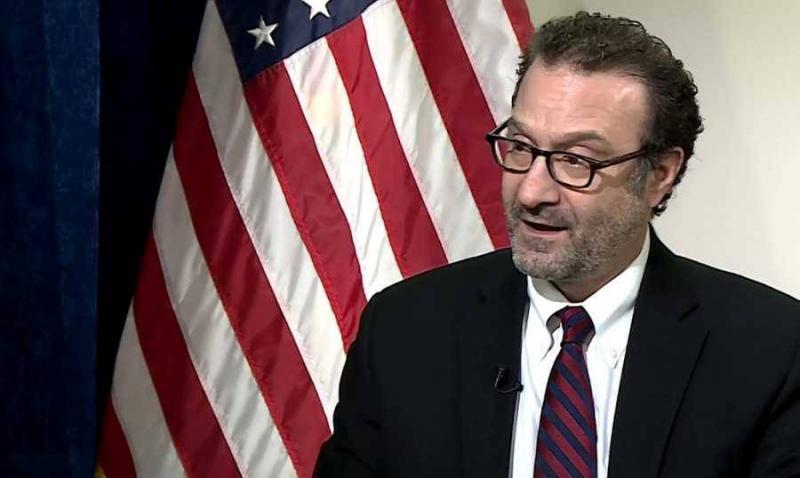Former U.S. Assistant Secretary of State for Near Eastern Affairs David Shincker warned against a "bad ceasefire agreement in Gaza that preserves Hamas's power," calling for a lesson to be learned from the July 2006 war in Lebanon, where United Nations Security Council Resolution 1701 to end the war ensured the outbreak of another, more destructive conflict between Israel and Hezbollah in the future. Shincker wrote an article in the magazine "National Interest," likening the United States' position in the current crisis to the events during the 2006 war between Israel and "another Iran-backed proxy, Hezbollah." He explained that in July of that year, "shortly after Hamas abducted an Israeli soldier to Gaza, Hezbollah launched an unprovoked cross-border attack, resulting in the deaths of many Israeli soldiers and the capture of two, igniting a war that lasted thirty-four days, during which Hezbollah fired over 4,000 rockets at Israel, and Israel dropped approximately 7,000 bombs and missiles on Lebanon. The conflict peaked with a major Israeli ground invasion of southern Lebanon, resulting in nearly 160 Israeli and 1,200 Lebanese deaths, and displacing half a million Israelis and a million Lebanese."
Shincker continues: "As in the current crisis in Gaza, international calls for a ceasefire escalated after the war began. Days into the fighting, then-U.S. Secretary of State Condoleezza Rice opposed the international consensus, stating that 'a ceasefire would be a false promise if we merely returned to the status quo.' However, as the war progressed and casualties in Lebanon increased, diplomatic pressures intensified. As Rice recounted in her 2011 memoir 'No Higher Honor': 'The international community was moving from despair over the rising humanitarian toll to blaming Israel.' After weeks of conflict, Rice met with then-Israeli Deputy Prime Minister Amir Peretz, informing him that 'time was running out,' and that she 'could not hold out' against the calls for a ceasefire much longer."
Rice sought to end the war, but she also recognized that without "the right conditions for a ceasefire," Hezbollah would "achieve a victory for its aggression." Ultimately, Bush administration conditions for a ceasefire were incorporated into U.N. Security Council Resolution 1701, which significantly expanded the presence (almost seven-fold) and mandate of international peacekeeping forces stationed along the Israeli-Lebanese border since 1978 (UNIFIL), tasked with patrolling southern Lebanon and ensuring that Hezbollah could not rearm. However, according to Rice, it was "an imperfect solution," merely an arrangement that would lead to stability along the border. She noted that UNIFIL was "a capable peacekeeping force."
According to Shincker, the Bush administration acted in good faith, but Rice's trust in UNIFIL was misplaced. UNIFIL proved ineffective. Hezbollah took five years to rebuild itself. Since then, it has significantly updated its arsenal. Today, the threat along Israel's northern border is not at the status quo it held in 2006; it is much worse.
The American diplomat specialized in Lebanon admits that Israel's performance "was weak during its 2006 campaign against Hezbollah. The Israeli Defense Forces were not only unprepared for the conflict; they lacked the necessary intelligence, targets, and training for the mission." Shincker refers back to Rice's book, in which she said: "Their leaders had no clear idea of their strategic objectives." As a result, despite the Bush administration’s support for the Jewish state, Rice concluded that the continuation of fighting would not improve Israel's security and halted the war.
Shincker then continues the comparison: "As in the early weeks of the 2006 war, Washington has so far made extraordinary efforts to provide Israel with enough time to weaken Hamas's capabilities and destroy its military assets in northern Gaza. However, it is uncertain whether the Biden administration will continue to oppose a ceasefire, which would allow Israel to transition to the next, less intensive phase of operations in the south, especially if a truce for hostage exchange is extended. As the war continues, the administration will feel increasing concern about civilian casualties among Palestinians, the humanitarian situation in Gaza, and the risk of the conflict escalating. There will also be worries about the impact of eroding diplomatic capital on other priority items on the U.S. agenda, such as Ukraine, and the potential repercussions for the 2024 presidential elections."
Shincker concludes that "Hamas has become a strategic problem for Israel. In the absence of a decisive setback for Hamas in this war, the movement will emerge, like Hezbollah in 2006, with a 'divine victory,' and Gaza will revert to the situation of October 6, with dire consequences for Israel's deterrent posture and a crisis of trust in Israel due to the state's failure to defend its people." He ends by noting that "U.S. support for the campaign will not continue indefinitely. The administration's ongoing patience is likely to be measured in weeks, not months. Regardless of when the Biden administration will ultimately yield to pressure for a ceasefire, it must learn the lesson from 2006. U.N. Security Council Resolution 1701 ended the war in Lebanon, but it almost certainly ensured the outbreak of another, more devastating fire between Israel and Hezbollah in the future. The lesson from 2006 is that a bad ceasefire, a truce that leaves Hamas intact, will only delay the next round of bloodshed."




